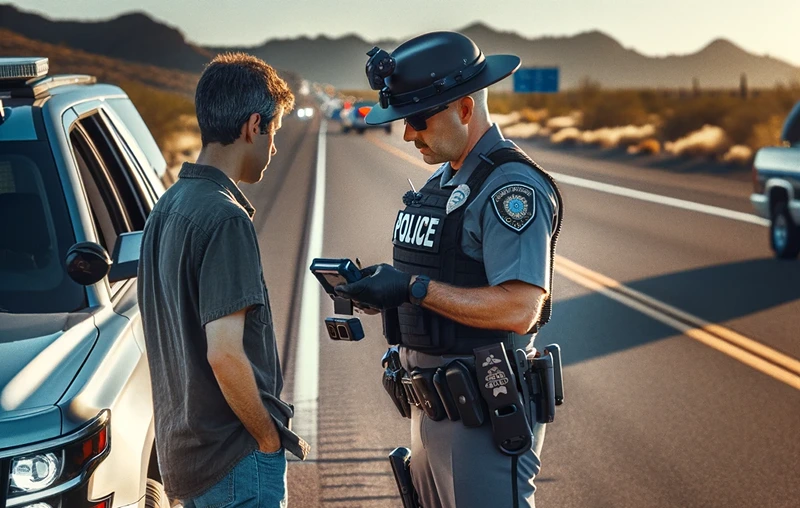Understanding Arizona DUI Laws: Types, Penalties, and Defense
As a driver in Arizona, it is crucial to understand the intricacies of the state's DUI laws. The state classifies driving under the influence (DUI) offenses into several categories, each with varying penalties based on the severity and number of prior convictions. This article seeks to offer a comprehensive understanding of Arizona's DUI laws, covering aspects like felony DUI charges and penalties, extreme DUI, and third-offense felony DUI, among others.
Types of DUI Offenses in Arizona
In Arizona, DUI offenses are classified into regular DUI, extreme DUI, and aggravated DUI.
Regular DUI
A regular DUI is the most basic offense and typically results in misdemeanor charges. However, the penalties can still be severe and may include mandatory jail time, fines, and other repercussions1.
Extreme DUI
An extreme DUI is a drunk driving charge based on a blood alcohol concentration (BAC) of between 0.15 percent and 0.19 percent2. While still considered a misdemeanor, it often comes with harsher penalties than a regular DUI3.
Aggravated DUI
An aggravated DUI, on the other hand, is a felony offense. It often involves additional significant factors such as having prior DUI convictions, driving under suspension, or having a minor in the vehicle at the time of the offense. Both the third DUI within seven years and a DUI occurring while your license is suspended can be charged as an aggravated (or felony) DUI4,5.
Penalties for DUI Charges in Arizona
Understanding the penalties for different types of DUI in Arizona might help underline the seriousness of these offenses.
Regular and Extreme DUI Penalties
A regular or extreme DUI conviction can result in not only hefty fines but also mandatory prison time, showcasing Arizona's strict DUI laws1. For instance, an aggravated DUI resulting in a Class 4 felony could lead to penalties of up to two years imprisonment and at least $2,500 in fines and fees6.
Aggravated DUI Penalties
Aggravated DUI penalties are substantially severe. An aggravated DUI conviction could lead to mandatory minimum imprisonment7. Moreover, if an individual commits a third DUI within seven years, the third DUI could potentially be charged as a felony – significantly impacting the individual's life4.
The Importance of DUI Attorney Consultation
Given the complexity of Arizona's DUI laws and the severity of potential penalties, hiring a competent Phoenix DUI attorney becomes integral. Whether faced with a regular, extreme, or aggravated DUI, promptly consulting with a DUI attorney after a drunk driving arrest is vital3.
An experienced attorney can help you understand the legal consequences of your charges, explore possible defense strategies, and guide you through the intricacies of Arizona's DUI laws. For instance, if you have two previous felony convictions, it's worth noting that your third DUI offense wouldn't necessarily need to be for aggravated DUI to be considered a third-offense felony8.
FAQs about Arizona DUI Laws
1. What are some potential defenses to a DUI charge in Arizona?
Defense strategies can include challenging the legality of the traffic stop, the accuracy of breathalyzer reading, the reliability of field sobriety test results, and more.
2. Can I be charged with a DUI if my BAC is below the legal limit?
Yes. In Arizona, you can be charged with a DUI if your impairment is due to drugs or alcohol, regardless of your BAC level.
3. Is jail time mandatory for all DUI convictions in Arizona?
Arizona law does mandate jail time for all DUI-related convictions. However, there might be alternatives to jail sentences that can be negotiated.
Conclusion
A DUI conviction in Arizona can have serious implications, whether it's an aggravated DUI, extreme DUI, or regular DUI. It's essential to understand the differences, potential penalties, and the importance of early legal representation. By understanding the state's DUI laws, drivers can better navigate the legal landscape if they ever find themselves in such unfortunate circumstances.
Ensure you understand Arizona's DUI laws, including regular, extreme, and aggravated DUI, and the corresponding penalties. Knowing the potential legal repercussions can help you make informed decisions following a DUI-related incident.
Footnotes
-
https://www.weingartfirm.com/different-types-of-arizona-duis/ ↩
-
https://www.scottsdale-duilawyer.com/articles/understanding-aggravated-dui-versus-extreme-dui-in-arizona/ ↩ ↩2
-
https://dmcantor.com/dui-vehicular-crimes/aggravated-dui-dwi-felonies ↩
-
https://www.smartstartinc.com/blog/is-dui-a-felony-in-arizona/ ↩
-
https://www.weingartfirm.com/penalties-enhanced-aggravated-dui-arizona/ ↩






